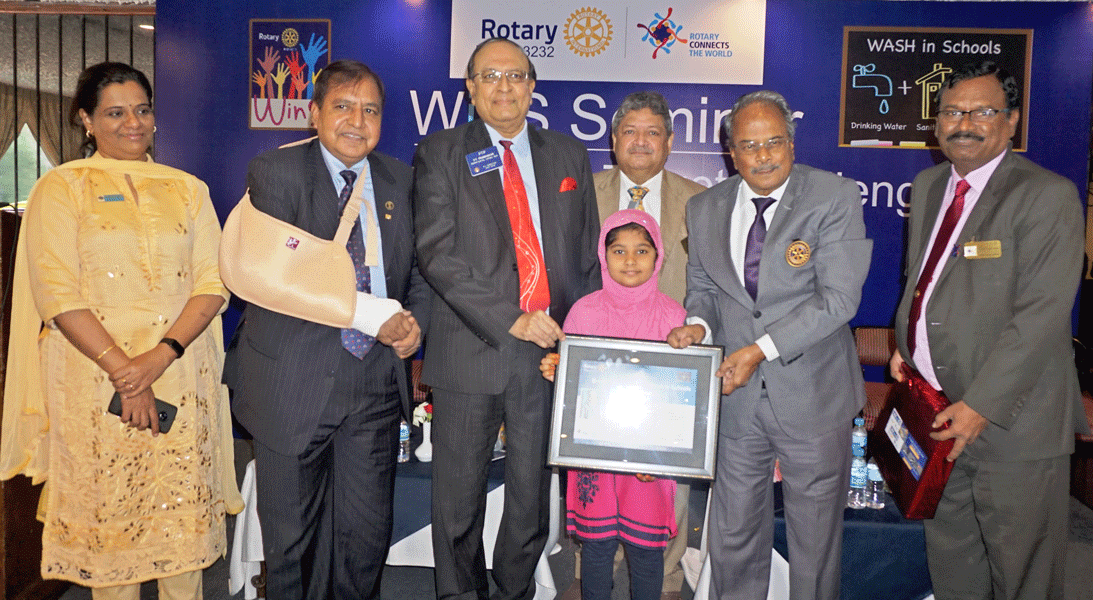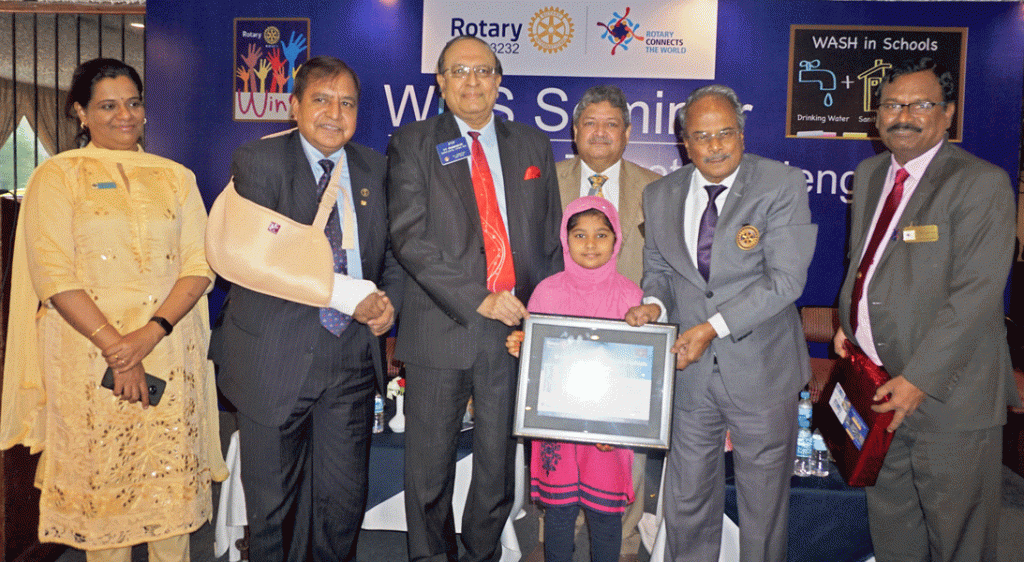RIPE Holger Knaack and RIPN Shekhar Mehta have set a target of 100,000 WinS projects across India by 2025. So far, the programme, aimed to usher in drinking water, sanitation and hygiene facilities, has covered 40,000 schools after it was launched in 2017 to mark the TRF centenary, said WinS Global Chair PRID P T Prabhakar, speaking at the WinS Target Challenge seminar in Chennai for RID 3232 clubs.

“We are reaching out to at least 10,000 schools each year and this new target could be achieved easily. Around 44 per cent of morbidity in children occurs due to non-prevalence of handwashing practice in Indian schools. Globally, 4.8 crore children suffer from stunted growth, of which 33 per cent are in India. And of the 40 crore people defecating in the open worldwide, one-third (13 crore) are in India,” he said.
UNICEF and World Vision, a specialist NGO, have partnered with Rotary clubs to install hardware components (such as toilets, handwash stations) and bring in attitudinal change among teachers, students and stakeholders (software component).
The highlight of the seminar was the recognition of Hanifa Zaara, a Class 3 student, as WinS brand ambassador. Zaara was in the limelight last year when she lodged a complaint against her father at the local police station for not acceding to her repeated pleas to construct a toilet in her house.
The incident went viral on social media, and within a day, the Ambur Municipality built a toilet in her house. And, thanks to her, over 100 families got toilets built by the local body in their houses. Following widespread coverage, Zaara was selected as Clean India Ambassador for Vellore district.
WinS Committee Member PDG Ramesh Aggarwal said that when the Target Challenge, a TRF pilot, ends in June 2020, it will be rolled out on a global scale even as RIPN Shekhar Mehta is planning to push WinS to the next level on par with Basic Education and Literacy.
The WinS India Recognition Committee is giving star-rating to schools which have been adopted by clubs under WASH projects. So far around 40,000 schools have got ratings, he said. With his coaxing, Rotary clubs in the district have agreed to cover 600 schools for one-star rating in this Rotary year. With support from the UNICEF and other stakeholders, “we are able to integrate WASH lessons into the school curriculum to sustain change in hygiene and sanitary habits of children,” Aggarwal said.

After completing a WinS project, a club has to maintain the sanitation facilities for two years before handing them over to a School Management Committee (SMC) for regular upkeep of these facilities.
The very first project done by Rotary was toilet installation in Chicago in 1907 and the latest project done by RID 3232 was setting up three toilet blocks in Thanjavur (southern Tamil Nadu), said DG G Chandramohan. In a government school near Coimbatore, toilets were maintained clean till the inspection by government officials. After that they converted the newly-set up sanitation facilities into a kitchen and students resumed open defecation. “This only shows how difficult it is to change the mindset of children and teachers,” he said.
He allocated ₹15 lakh to 21 clubs to set up two toilets and a handwash station in each school. Prabhakar urged the clubs to pool in an equal amount to reach out to more schools
Dr Meenakshi Bharat, RID 3190, who had mentored Inner Wheel clubs in holding sessions on MHM in schools, cautioned against single use, disposable pads, which harm the environment.” Reusable cloth pads are a better alternative as they cost less, are easy to wash and can be dried in natural sunlight. She called upon Rotarians to introduce cloth pads and menstrual cups to women in their families to spread the message of handling periods in a safe and eco-friendly manner.
RID 323 Inner Wheel Chairman Nallini Olivannan said that Inner Wheel is ready to partner with Rotary clubs to take MHM to the next level.
“We are awaiting government approval to set up feeding rooms for lactating mothers at bus terminals across the State. The first such cabin was set up in Tirunelveli in 2010,” said District WinS Chair P Jayanathan. District WinS Coordinator PDG Natarajan Nagoji and World Vision India specialist Regina Ernst were the other speakers.






